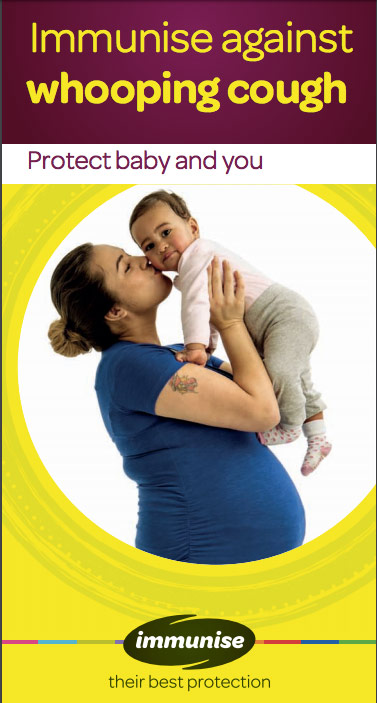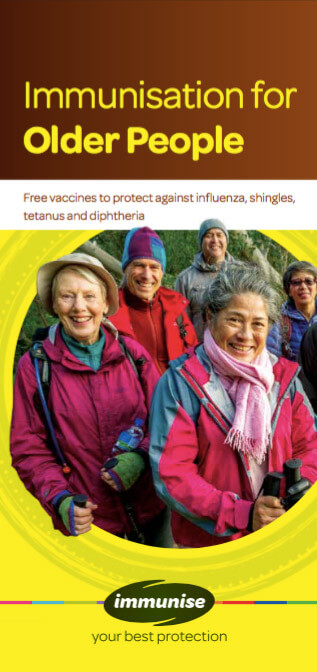Fact: Vaccines are very safe. Most vaccine reactions are temporary and minor, such as a fever or sore arm. It is rare to have a serious reaction (often called a serious health event) following a vaccination. You are far more likely to be seriously injured by a vaccine-preventable disease than by a vaccine. The benefits of vaccination greatly outweigh the risk, and without vaccines many more disabilities and deaths would occur.
Low or no data? Visit zero.govt.nz, scroll down the page then click on our logo to return to our site and browse for free.
What are the facts about vaccines?
Key points about vaccine facts
- Vaccinations are one of the best ways to protect yourself and your children against many serious diseases.
- Here you will find factual information to help clear up confusion caused by some myths about them.
- You can then make a more informed choice for yourself and your whānau.

Fact: You cannot get the disease from the vaccine. Vaccines stimulate your immune system to produce an immune response similar to a natural infection, but they don’t cause the disease or put you at risk of its potential complications. Most vaccines only contain a fragment of the germ so it isn’t possible to contract the disease from the vaccine. A few vaccines contain live organisms, and when vaccinated some people may develop a rash, but only with a few spots, and a fever. This isn’t harmful, and can actually show that the vaccine is working.
Fact: Vaccines do not contain harmful levels of ingredients. Vaccines contain ingredients that allow them to be safely given to you. Any substance can be harmful in significantly high doses, even water. The ingredients in vaccines are at a lower level than what we are naturally exposed to in our environment. This means they do not cause harm as part of a vaccine.
Fact: Natural immunity occurs when you have to fight off an infection. If you survive the infection, you become immune to the germ that caused it.
It is true that natural immunity may sometimes (but not always) be stronger than vaccine-acquired immunity, but the risks of this approach far outweigh its benefits. Some vaccines actually provide better immunity than natural infection.
For example, to develop natural immunity to measles, a child would need to catch measles first. However, measles can cause many uncomfortable symptoms and can lead to complications, including death. About 1 in 20 children develop pneumonia, and a quarter of people need a stay in the hospital. Measles complications can be life threatening. The World Health Organization (WHO) states that between 2000–2017, vaccinations contributed to an 80% decrease in measles-related deaths.
Developing vaccination-acquired immunity to measles involves a far lower risk of harm and it likely lasts a lifetime. It is extremely rare that someone reacts severely to the vaccine.
Vaccination is a safer choice than naturally acquired immunity and can save a child from having to go through a serious illness.
Fact: Vaccine-preventable disease rates have dropped because vaccination is now a widespread and common practice. In recent years, however, the number of people contracting some vaccine-preventable diseases has increased. Research has found that children who do not get vaccinated are a contributing factor to this troubling trend.
To prevent the spread (and return) of several diseases, it is vital that children continue to receive vaccinations.
Fact: Vaccination actually strengthens your immune system. Vaccination prompts your body to produce cells and antibodies to fight off the infection, teaching the immune system how to fight off the disease. This strengthens your immune system’s ability to fight off the disease targeted by the vaccine, making it less likely you will get it, and if you do get it, you are likely to have a less severe version with fewer complications.
There is a lot of research that shows that vaccinated children are less likely to get the vaccine-preventable diseases and are at no greater risk for other infections. Overall they are healthier and do better (have better health outcomes).
Fact: Vaccines do not cause autism. The confusion came about because in 1998 a British doctor thought there was a link between the measles, mumps and rubella (MMR) vaccine and autism. It has since been found that the doctor had changed the patient data and the laboratory reports were incorrect. The study was removed from the scientific literature and the British authorities removed the doctor’s licence to practice medicine.
There are now many well-conducted studies that have addressed this issue, and some studies have more than one million children in them. These studies strongly show no evidence of any connection between autism and the MMR vaccine, even among at-risk individuals. The MMR vaccine is very safe.
Fact: The immune system of even very young babies can respond to many vaccines at once. The immunisation schedule is based on decades of medical evidence showing the best time for vaccines to be most effective in preventing the diseases in the schedule. Often children are most vulnerable to these diseases, so if vaccines are spread out over a longer time, there is a chance of missing the best time to protect our children.
There are far fewer immune stimulants in all the infant scheduled vaccines combined than there are in a single natural infection. Your child’s immune system has the ability to respond to many vaccines at the same time.
While some parents may be concerned about their child having 3 or more vaccines at one time, it is very safe to do this and their immune system will respond in a similar manner to giving 3 vaccines at separate times.
Fact: Herd immunity only exists if very high numbers of people in each area get vaccinated. If several neighbours also decline vaccines for their children, your child is at risk. Also, for some diseases there is no herd immunity effect of the vaccine, so vaccination to provide protection for each person is vital.
Even where there is a high rate of vaccination, herd immunity offers no guarantees. The protective effect of herd immunity can vary based on the 'herd' that you move with. Relocation, travel or even a new circle of friends can change the composition of your herd and therefore its shared protection against infection.
Relying on herd immunity and low vaccination rates in some age groups has contributed to recent measles outbreaks in New Zealand and overseas, where many children have become very ill and some have died.
Fact: The Pfizer vaccine can be given at the same time as any other vaccine on the National Immunisation Schedule(external link) or the influenza vaccine. If you're given 2 vaccines at the same time, you'll receive the vaccines in separate places on your body and with different syringes. Read more about the COVID-19 vaccines(external link) and the flu vaccine(external link).
For other reliable and accurate information about COVID-19 vaccines, see:
Karawhiua(external link) A campaign for whānau, hapū, iwi and Māori communities to help prevent the spread of COVID-19, Te Puni Kōkiri (Ministry for Māori Development), NZ
COVID-19 vaccination rollout for Northland and Auckland(external link) IMAC, NZ, 2021
Getting vaccinated for COVID-19(external link) The Immunisation Advisory Centre, NZ
Covid-19 education(external link) Immunisation Advisory Centre, NZ
COVID-19 – vaccine planning(external link) Ministry of Health, NZ
COVID-19 therapeutic products – questions and answers(external link) Medsafe, NZ
Facts about COVID-19 vaccines(external link) Centers for Disease Control and Prevention, US
Coronavirus disease (COVID-19) – vaccines(external link) World Health Organization
Questions and answers about COVID-19 vaccines(external link) Children's Hospital of Philadelphia
Brochures
Immunise during pregnancy Health Ed, NZ, 2022 English(external link), te reo Māori(external link), Samoan(external link), Tongan(external link), Chinese (simplified)(external link), Chinese (traditional)(external link), Hindi(external link)
Childhood immunisation booklet(external link) Ministry of Health, NZ, 2019
Immunisation for older people Ministry of Health, NZ, 2022 English(external link), te reo Māori(external link), Samoan(external link), Tongan(external link), Chinese (simplified)(external link), Chinese (traditional)(external link), Cook Island Māori(external link), Hindi(external link)
References
- Six common misconceptions about immunization(external link) World Health Organization
- Vaccine myths and misconceptions(external link) Journal of the American Academy of Physician Assistants, 2014
- Vaccines – the myths and the facts(external link) American Academy of Allergy, Asthma & Immunology, US, 2019
- Offit PA, Quarles J, Gerber MA, et al. Addressing parents’ concerns – do multiple vaccines overwhelm or weaken the infant’s immune system?(external link) Pediatrics January 2002, 109 (1) 124-129.
- MMR vaccine does not cause autism – examine the evidence!(external link) Immunization Action Coalition, US
Brochures

Health Ed, NZ, 2022
English, te reo Māori, Sāmoan, Tongan, Chinese (simplified), Chinese (traditional), Hindi

Ministry of Health, NZ, 2022
English, te reo Māori, Samoan, Tongan, Chinese (simplified), Chinese (traditional), Cook Islands Māori, Hindi
Credits: Healthify editorial team. Healthify is brought to you by Health Navigator Charitable Trust.
Reviewed by: Dr Helen Petousis-Harris, Associate Professor, University of Auckland
Last reviewed:
Page last updated:





